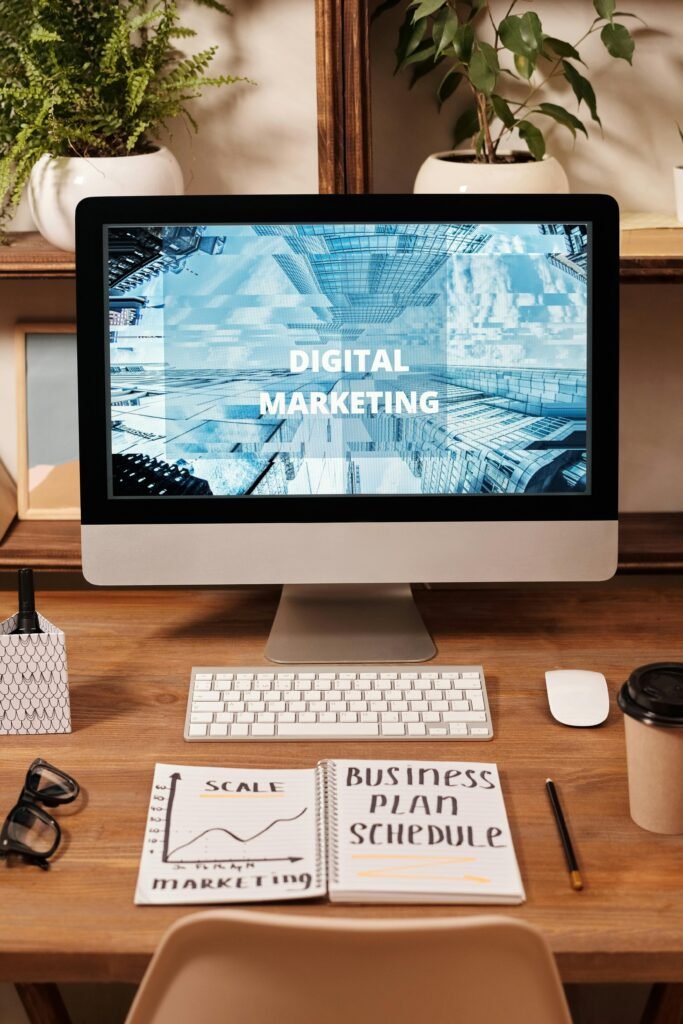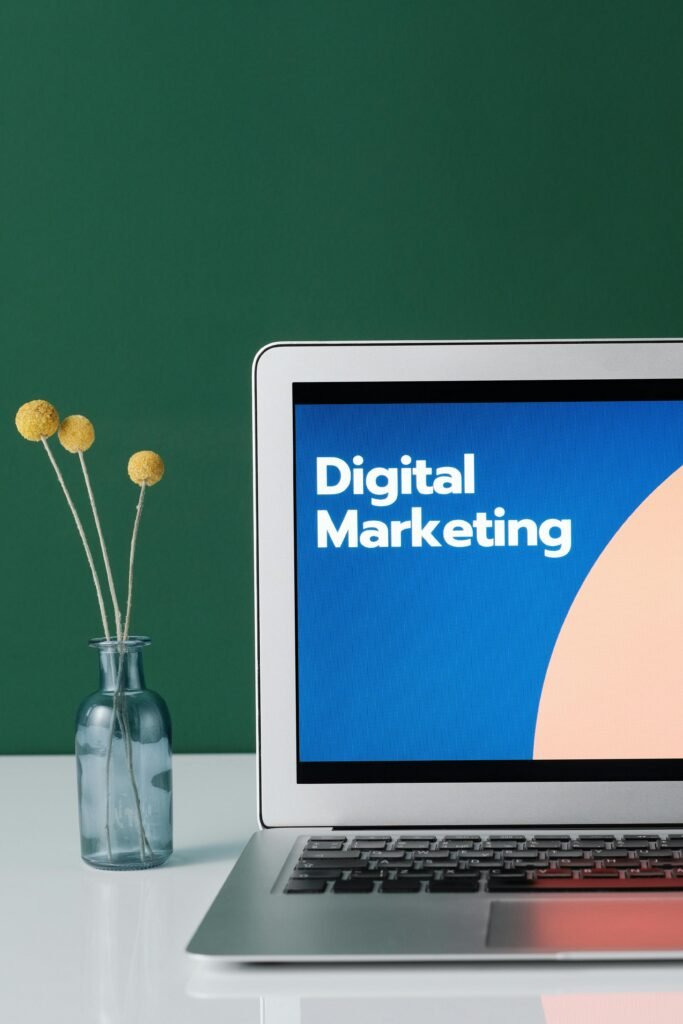Digital Marketing: The Ultimate Guide to Growing Your Business Online
In today’s fast-paced digital world, businesses must go beyond traditional advertising to reach and engage with their target audience. That’s where Digital Marketing comes in — a powerful strategy that leverages the internet and electronic devices to promote products and services. Whether you’re a small startup or a large corporation, understanding digital marketing is crucial for success in the modern marketplace.
What is Digital Marketing?

Digital marketing refers to all marketing efforts that use the internet or electronic devices. This includes channels such as search engines, social media, email, websites, and mobile apps. Unlike traditional marketing, digital marketing allows businesses to reach a global audience with personalized messaging, track real-time results, and optimize campaigns for better performance.
Key Components of Digital Marketing
1. Search Engine Optimization (SEO)
SEO is the practice of optimizing your website to rank higher in search engine results pages (SERPs). This increases organic traffic to your site by making it more visible to people searching for relevant keywords.
Benefits:
- Increases visibility
- Drives high-quality traffic
- Improves brand credibility
2. Content Marketing
This involves creating valuable, relevant, and consistent content to attract and retain a clearly defined audience. Content can include blog posts, videos, infographics, eBooks, and more.
Benefits:
- Builds trust and authority
- Supports SEO efforts
- Engages your audience
3. Social Media Marketing
Social media platforms like Facebook, Instagram, Twitter, LinkedIn, and TikTok allow businesses to connect with their audience, build brand awareness, and drive traffic and sales.
Benefits:
- Direct customer engagement
- Cost-effective promotion
- Viral marketing potential
4. Email Marketing
Email remains one of the most effective digital marketing tools. Businesses use it to nurture leads, communicate with customers, and drive conversions.
Benefits:
- High ROI
- Personalized messaging
- Easy automation
5. Pay-Per-Click (PPC) Advertising
PPC allows businesses to display ads on search engines or social platforms and pay only when someone clicks the ad. Google Ads and Meta Ads are the most common platforms.
Benefits:
- Immediate results
- Budget control
- Measurable performance
6. Affiliate Marketing
This involves partnering with affiliates who promote your products in exchange for a commission on sales they generate.
Benefits:
- Performance-based model
- Expands reach
- Low risk
Why Digital Marketing Matters
- Cost-Effective: Compared to traditional marketing, digital strategies often require lower budgets while offering higher returns.
- Targeted Reach: You can tailor campaigns to specific demographics, interests, and locations.
- Measurable Results: Analytics tools provide real-time data on what’s working and what’s not.
- Customer Insights: Learn more about your audience’s behavior and preferences.
Tips for a Successful Digital Marketing Strategy
- Set clear goals: Define what you want to achieve—brand awareness, lead generation, or sales.
- Know your audience: Understand who your target customers are and where they spend time online.
- Use analytics: Track performance to make data-driven decisions.
- Stay updated: The digital landscape evolves quickly—keep learning and adapting.
- Focus on mobile: Ensure your campaigns and website are optimized for mobile users.
Conclusion
Digital marketing is no longer optional—it’s essential. With the right strategy and tools, you can connect with your audience, build trust, and grow your business in ways traditional marketing never could. Start small, measure results, and scale up what works. The digital world is full of opportunities—are you ready to take advantage?

